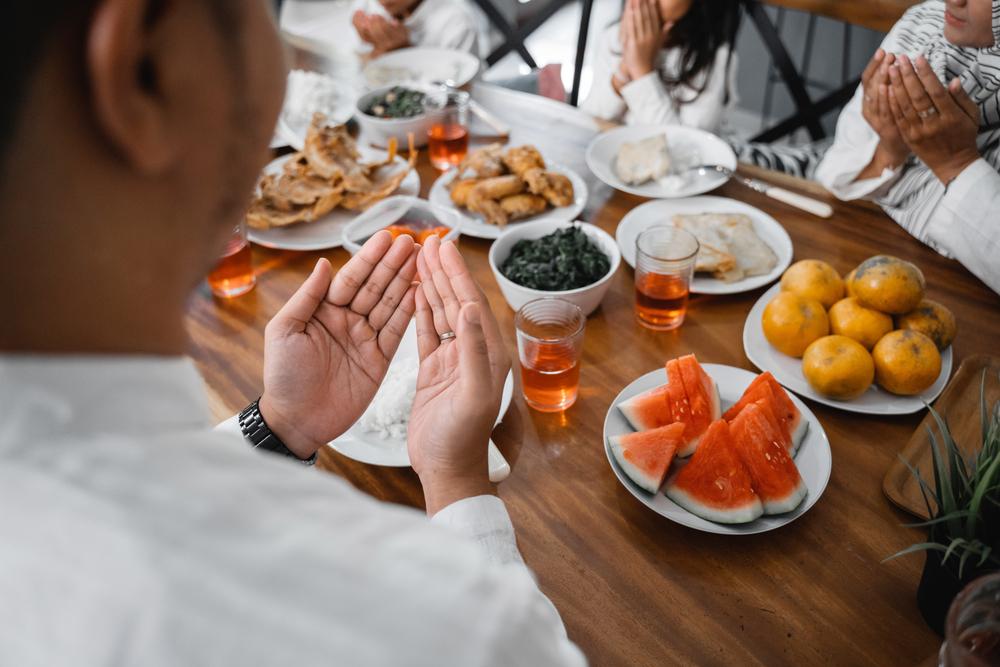
The ninth and most significant month of the Islamic lunar calendar is called Ramadan. For Muslims, it is the month of deep reflection, devotion, sacrifice, and communion. Ramadan celebrates the revelation of the Quran to the prophet Muhammad. Muslims fast during this month and it is known as ‘Sawm’, which is one of the pillars of Islam. Here, we are going to discuss the different aspects of Ramadan fasting.
The Spiritual Significance of Ramadan
By Ramadan fasting, Muslims are allowed to develop self-discipline, self-control, and, most importantly, empathy for others. The fasting rules require people not to eat and drink, smoke, or have any romantic relations from dawn until sunset. Each of these actions aims to cleanse the soul, redirect the believer’s focus to spiritual growth, as well as encourage mindfulness of Allah and foster charitable actions.
The communal aspects of Ramadan are of equal importance. Muslims across the globe engage in prayers, Quranic recitals and adans, cook special dishes, united by their enduring community and religion. It fosters a sense of togetherness. Collective marks of devotion revolve around a pre-dawn meal called Suhoor, and a sunset meal, known as Iftar. These meals highlight the essence of togetherness in worship during Ramadan. Iconically, Ramadan is broken with dates and water in imitation of the footsteps of the Prophet Muhammad.
The observance of fasting during Ramadan calls for consideration of both self-physical and mental well-being. Ramadan includes fasting that can be an enriching spiritual experience; however, certain planning and adjustments will need to be taken into account.
Proper Nutrition Around Ramadan Fasting
The principles of nutrition and hydration are key points of focus here. Ramadan sets strict parameters for what breaks your fast. It makes it critical to sustain focus and energy throughout the day by providing well-balanced food. To avoid loss of energy, Suhoor should incorporate complex carbohydrates and sufficient amounts of lean proteins. To attain correct hydration levels, it is essential to drink adequate water whilst not fasting to avoid dehydrating oneself.
Exercise and Physical Activity
During Ramadan fasting, physical activity will need modifications to fit the fasting times. Fitness experts suggest shortening exercise sessions to 30 or 45 minutes and maintaining muscle mass rather than focusing on high-intensity training. Exercising after Iftar allows enough time for a good meal and hydration so one does not have to skip nutrition. This makes walking or light weight training more reasonable.
Mental Clarity and Prayer-Related Benefits
Fasting, aside from aiding weight loss, is also believed to sharpen one’s mind and spirituality. Not engaging in any physical activity or form of indulgence shifts focus inward, making one more mindful. This and fasting allow for deeper connections with one’s faith. Along with this, some people see fasting as an opportunity for self-reflection and growth, where they experience inner self-actualization or happiness.
Religious Accommodations and Exemptions
Islamic conditions prescribe some exemptions from Ramadan fasting, especially for those for whom it would be excessively difficult. These include:
Children: Children below puberty are not required to practice fasting, although some may choose to for shorter durations as a form of practice.
Chronic Conditions: Those with long-term health problems like diabetes or short-term health problems that could be made worse by not eating.
Nursing/Pregnant Women: Women who are pregnant or nursing have the option to fast to provide the necessary nutrients for the child and themselves.
Travellers: People who are travelling long distances are allowed to postpone their fasts to another date.
Elderly Individuals: Older people who cannot fast are not required to do so but are encouraged, if they have the means, to feed a poor person for every day of fasting missed.
Accommodations like these make sure that fasting does not become a burden.
Conclusion
The practice of Ramadan fasting is a deeply personal journey that integrates compassion, self-control, and togetherness towards a single purpose. Muslims focus on the essence of religion, charity, and bonding as daylight fasting shifts their needs to physical growth. The practice of Suhoor and Iftar goes beyond a particular religious practice and strengthens community and family relations. Observing in remembrance the guiding principles of Ramadan and its practices helps understand and appreciate the diversity of Islamic religion and the values it upholds.
FAQs
What is the purpose of fasting during Ramadan?
The most renowned Islamic holy month of Ramadan requires followers to fast. The fasting serves many of its purposes: it is an act of worship and submission to Allah, a means to exercise one’s self-control and discipline, an attempt to develop sympathy for the needy by embracing thirst and hunger, as well as allowing for a spiritual reflection and intends to strengthen a person’s faith.
Who is exempt from fasting during Ramadan?
Worry Not! There are ample reasons to justify a person’s need to be excused from fasting. Here are the listed below reasons that can prove to be harmful.
Children: Pre-pubescent children do not have the necessity to fast.
Medical Condition: Chronic illnesses such as Diabetes as well as having acute medical conditions that advance during fasting.
Women Who Are Pregnant/Nursing: Women who are expectant or lactating can refrain from putting their health at risk as well as their child’s.
Travelers: Long journeys enable a person to mitigate their fast to a slower range.
Older Adults: Those who are elderly and do not have the physical capacity to fast are exempted from this practice. Furthermore, should they choose to, they may compensate by feeding a needy person for each day they missed provided they have the financial resources to do so.
What food items are customarily consumed during Suhoor and Iftar meals?
During Suhoor (the pre-dawn meal), it is best to consume foods that include complex carbohydrates, fibre, and protein to help fuel the coming day. To achieve this, whole grains, fruits, vegetables, and lean meats can be consumed. For Iftar (the meal to break the fast), it is customary to start with dates and water followed by a well-balanced meal with both solids and liquids to replenish the energy and nutrients within the body.
In what ways can one keep physically fit during the month of Ramadan?
In contrast to the rest of the year, physical fitness during Ramadan should be adjusted towards flexibility. Experts suggest additional lesser intensity or time limits, including half an hour to mid-forty-five minute walks, light weight training, and waiting until after breakfast (first prosthetic heard after his death) when you can then drink water before exercise. It becomes necessary during this period to change the focus towards the healing and recuperating of the body.
How does fasting during Ramadan affect life and work schedules?
Fasting during Ramadan means altering a person’s daily and work life by energy levels, along with meal times.
